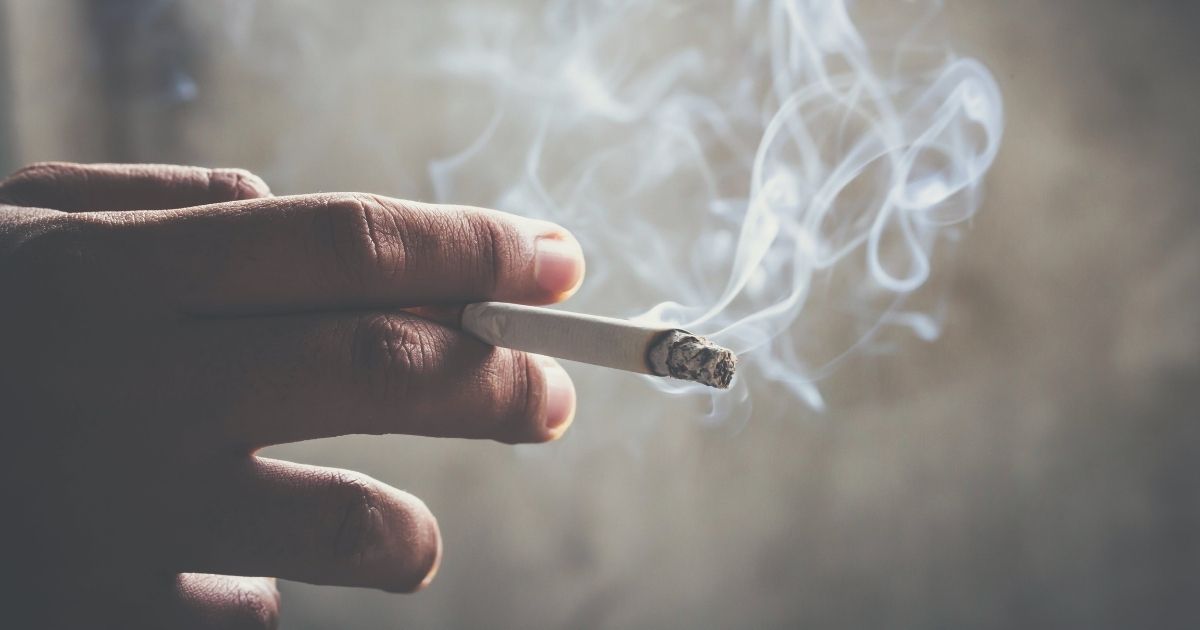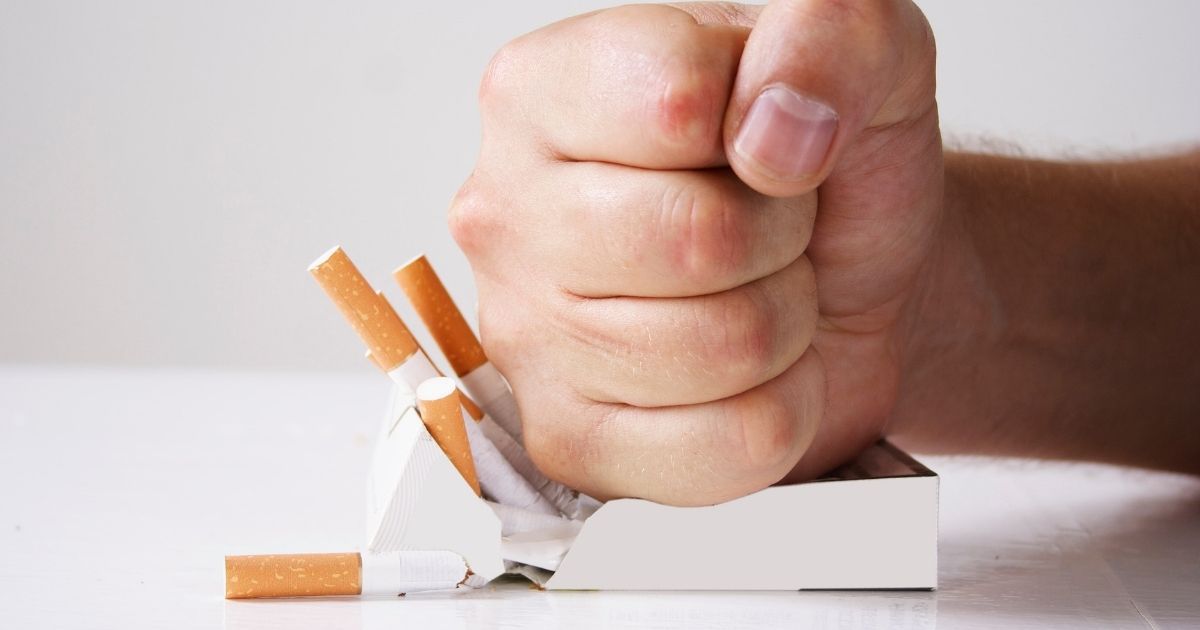Smoking & dental implants: what you need to know
Dental implants have revolutionised dentistry, offering a long-term solution for missing teeth. However, for smokers, the journey to successful dental implants can be challenging.
This article delves into the complexities of smoking and dental implants, addressing key questions such as the impact of smoking, when you can smoke after surgery, and whether light smoking is permissible.
Reading time: 4 minutes

How does smoking affect dental implants?
Smoking has several adverse effects on oral health, significantly impacting the success of dental implants:
- Impaired healing: Smoking reduces blood flow to the gums, delaying the healing process post-surgery. Nicotine constricts blood vessels, limiting the oxygen and nutrients essential for healing.
- Increased risk of infection: Smokers are more susceptible to infections, which can jeopardise the integration of the implant with the jawbone (osseointegration).
- Bone loss: Smoking accelerates bone loss in the jaw, which is critical for the stability of implants.
- Reduced success rates: Studies have shown that smokers have a higher rate of implant failure compared to non-smokers. The success rate drops significantly, making the long-term prognosis less favourable.
It is often recommended to limit smoking following dental implant treatment for this reason, however, read on to learn further tips to help take this on if you´re a smoker.
Can you have dental Implants if you smoke?
Yes, smokers can have dental implants, but there are important considerations and additional risks.
Dentists often advise smokers to quit or reduce smoking before undergoing implant surgery. They will evaluate the patient’s overall health, bone density, pre-existing conditions like periodontal disease and whether bone grafting is needed due to bone loss.
Quitting smoking at least one to two weeks before dental implant placement surgery can improve blood flow and enhance healing. Even light smoking after dental implant surgery can compromise the healing process and increase the risk of complications.
When can you smoke after dental implants?
After surgery, it is advisable to avoid smoking for at least two to four weeks. This period is crucial for initial healing and osseointegration. Continuing to smoke even lightly can affect the long-term success of the implants.
Stopping smoking or a significant reduction of cigarette smoking is highly recommended to ensure the best outcomes.
Light smoking after dental implant
Some smokers may wonder if light smoking after a dental implant procedure is less harmful. Unfortunately, even light smoking can hinder the healing process and increase the risk of implant failure.
Nicotine and other chemicals in cigarettes compromise the body’s ability to heal efficiently, making it crucial to avoid smoking altogether during the recovery period.
Can you smoke after dental implants?
While technically you can smoke after getting dental implants, it is strongly discouraged. Smoking significantly increases the risk of complications such as peri-implantitis, an inflammatory condition affecting the soft and hard tissues around the implant, potentially leading to implant failure.
Poor osseointegration, where the implant fails to fuse with the jawbone properly, can also result from smoking. Additionally, smoking impairs blood flow, delaying the healing process and increasing the likelihood of long-term issues.

Practical tips for smokers considering dental implants
For smokers who are considering dental implants, the following tips can enhance the chances of a successful outcome:
- Consultation: Have an in-depth consultation with your dentist. Discuss your smoking habits openly and seek advice tailored to your situation.
- Smoking cessation programs: Enrol in a smoking cessation program. Many UK resources are available, including NHS Smokefree services.
- Oral hygiene: Maintain impeccable oral hygiene. Regular brushing, flossing, and dental check-ups are essential, while also helping to prevent further tooth loss for other teeth.
- Diet and lifestyle: Adopt a healthy diet rich in vitamins and minerals that support healing. Avoid alcohol and other substances that may impair recovery.
The role of dentists in supporting smokers
Dentists play a crucial role in supporting patients who smoke and are considering dental implants. They provide educational support, offering information about the risks associated with smoking and dental implants.
Pre and post-surgical care plans tailored to the patient's needs, including smoking cessation advice, are essential. Regular follow-ups are also scheduled to check the progress of the implant and address any issues promptly, ensuring the best possible outcome for the patient.
Conclusion
The effect of smoking on tooth implants is complex. While it is possible for smokers to receive dental implants, the risks are significantly higher compared to non-smokers. The success of dental implants in smokers heavily depends on their ability to quit or reduce smoking, particularly around the time of surgery.
For the best outcomes, smokers are encouraged to seek comprehensive advice from their dental professionals and utilise available support resources to quit smoking. The long-term health benefits extend beyond oral health, helping to reduce the chances of oral cancer and improving overall quality of life.